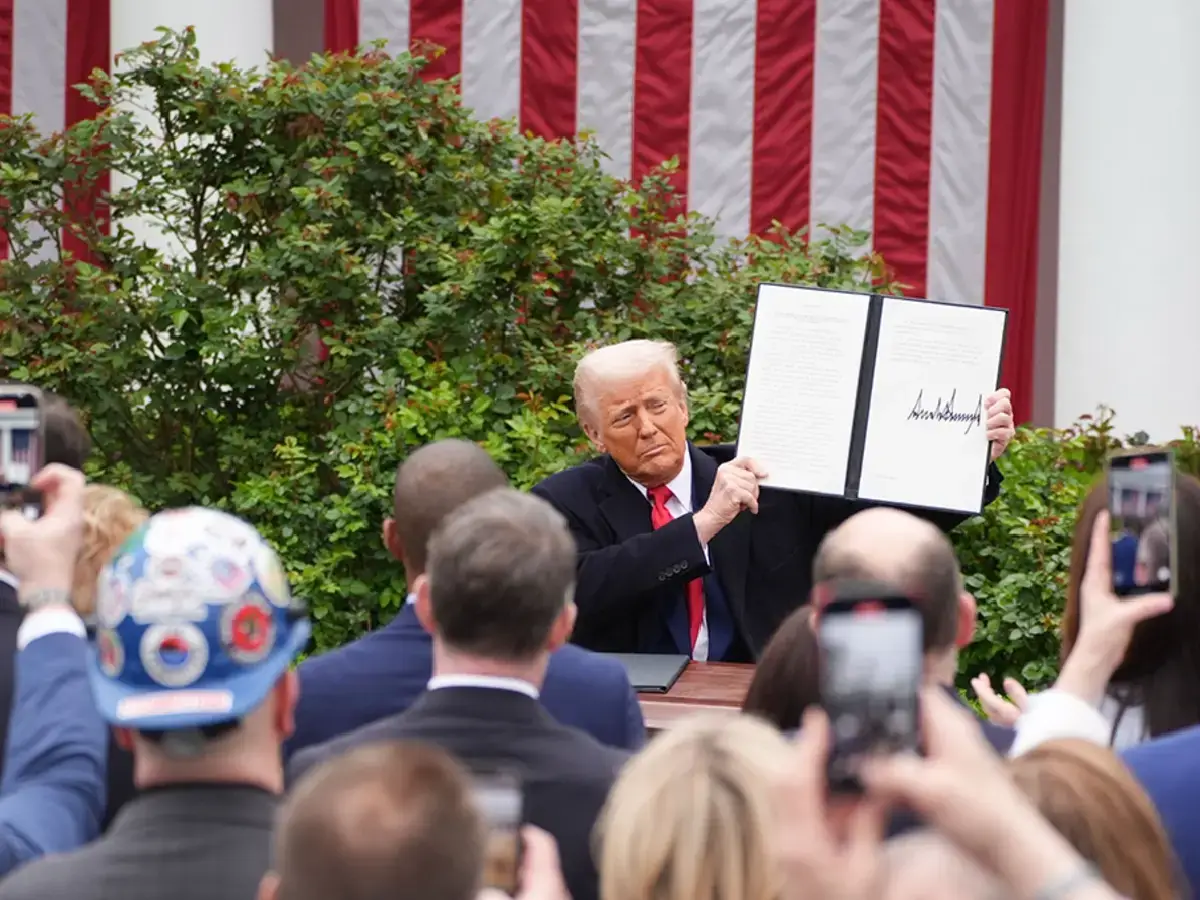Amidst ongoing discussions and debates, a significant question looms over the economic landscape of the United States: How can the world’s strongest economy declare a national emergency due to its trade deficit? This pressing issue has garnered attention from leading economists and legal experts, who are increasingly scrutinizing the implications and underlying factors that led to such a declaration.
The United States has been recognized as a global economic powerhouse with massive industrial output, technological advancements, and consumer spending power. However, this traditional view is now being challenged by the country’s escalating trade deficit, which, according to recent figures from the Department of Commerce, has reached unprecedented levels. The trade deficit, which occurs when a country’s imports exceed its exports, has been cited as a primary concern that could potentially jeopardize the nation’s economic stability.
Economists argue that while trade deficits are not inherently detrimental, persistent and large deficits can reflect underlying economic issues that need addressing. In the case of the United States, experts suggest several factors contributing to the growing deficit, including the strong U.S. dollar making American goods more expensive abroad, trade policies, and the competitive pricing of foreign products which can sometimes result in cheaper imports.
Further complicating the situation is the global economic environment characterized by trade tensions, tariffs, and fluctuating market demands. These elements contribute to a complex trade landscape where traditional economic policies may not suffice, prompting some to question whether a national emergency is a justified or effective response.
Legal experts, on the other hand, delve into the implications of declaring a national emergency over economic concerns such as the trade deficit. The National Emergencies Act allows the President to declare emergencies with specific statutory powers that can be utilized to address the situation. However, this approach is traditionally reserved for acute crises that threaten national security or public safety.
Using emergency powers to tackle economic issues like the trade deficit is highly unusual and raises concerns about the separation of powers and the potential for executive overreach. Critics argue that while the trade deficit is undoubtedly a significant concern, addressing it through emergency measures could set a concerning precedent, thus affecting the balance of governmental power as intended by the U.S. Constitution.
Moreover, declaring a national emergency may have unintended consequences on both domestic and international levels. Domestically, it could lead to increased government controls or restrictions on trade practices, potentially stifling innovation and competitiveness. Internationally, it may strain relations with trade partners, leading to retaliatory measures and a possible escalation into trade wars, which historically have harmed all parties involved.
In pursuit of a balanced approach, economists suggest targeted economic policies aimed at boosting domestic manufacturing, enhancing the competitiveness of American exports, and engaging in diplomatic negotiations to address trade imbalances. Encouraging innovation, investing in infrastructure, and education could also play pivotal roles in strengthening the economic foundation and addressing the root causes of the trade deficit.
As discussions continue, it becomes increasingly clear that while the U.S. economy faces challenges like the trade deficit, the solution requires careful consideration of economic, legal, and diplomatic tools rather than an emergency declaration. It necessitates a collaborative effort among lawmakers, business leaders, and the international community to foster a robust economic environment that can effectively manage and overcome such complexities. Moving forward, it is essential that any actions taken are measured, legally sound, and conducive to long-term economic stability and growth.










